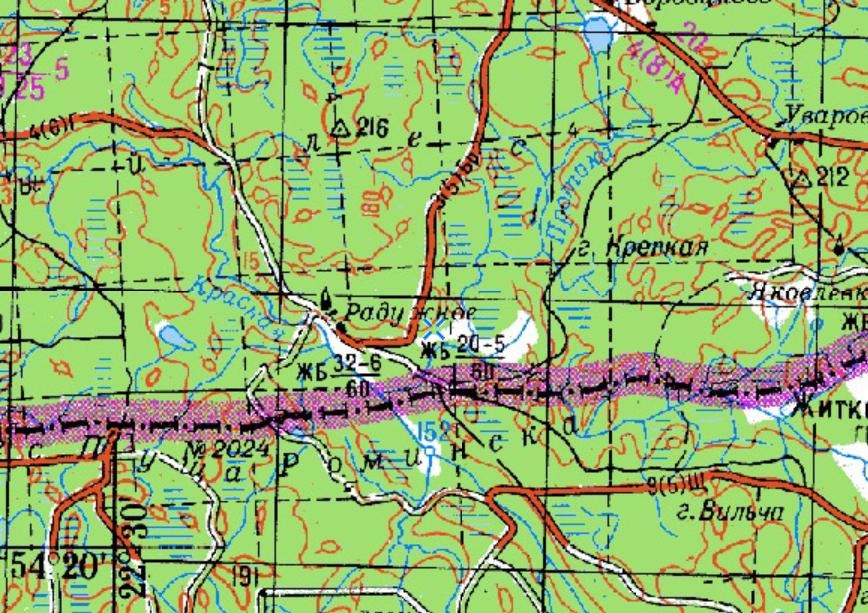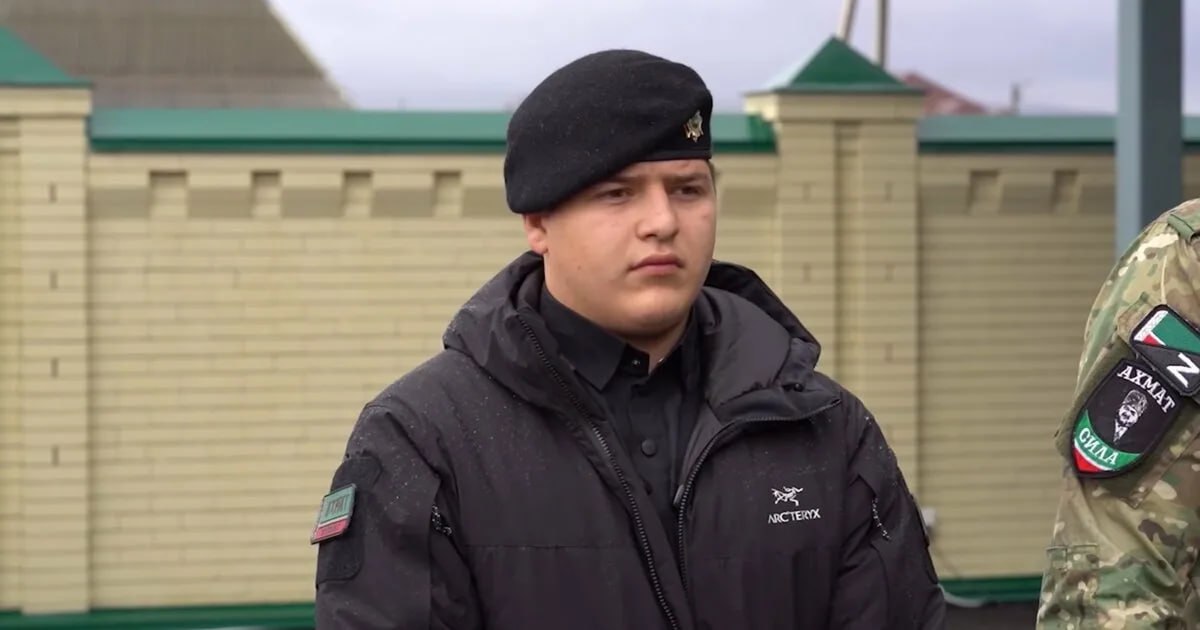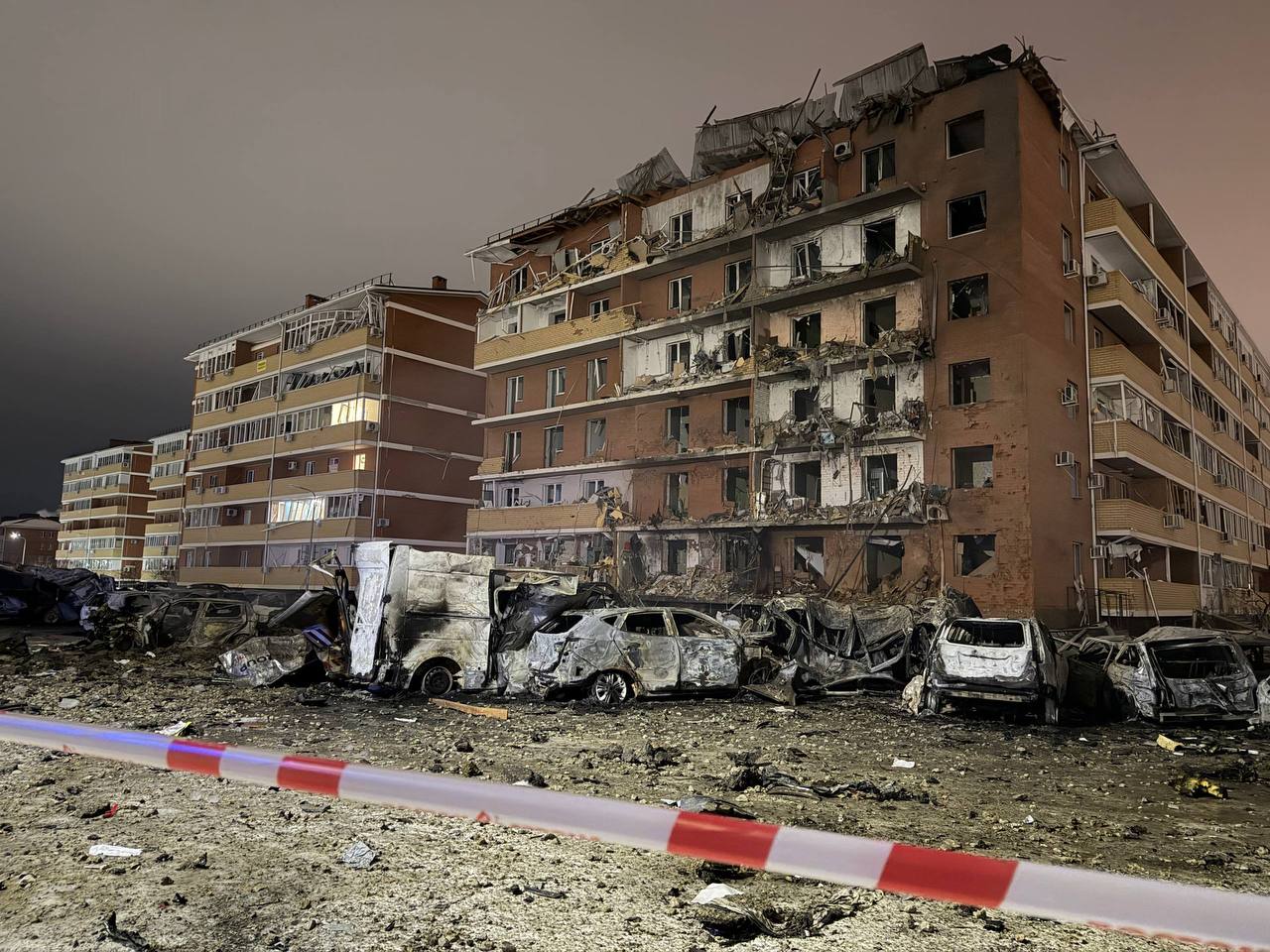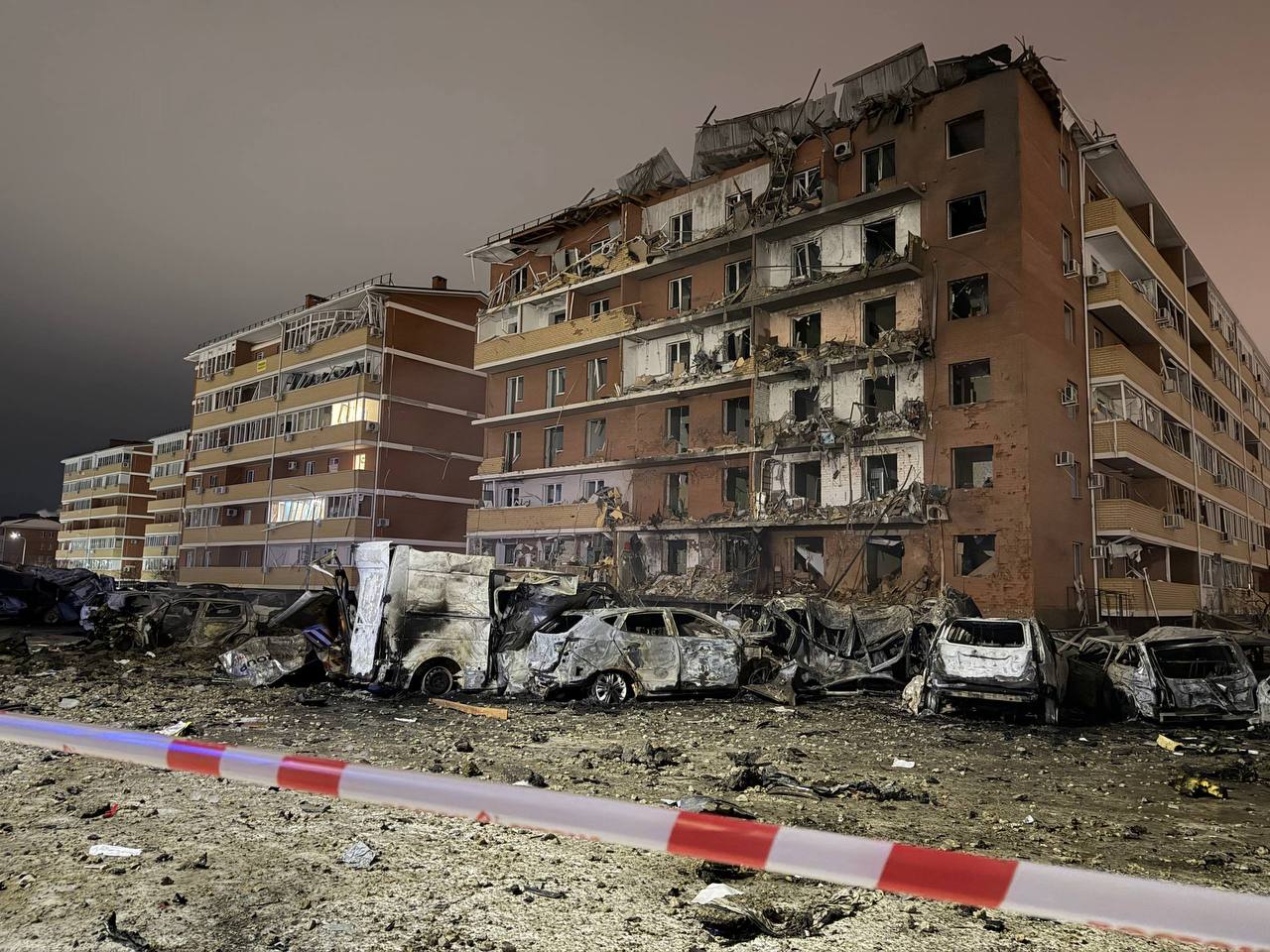The health of Adam Kadyrov, the son of Chechen leader Adam Kadyrov, who was injured in a traffic accident in Grozny, is improving, according to the Agency, citing sources close to the Russian presidential administration and the Chechen authorities.

October 26, 2001
***
On October 26-28, in the village of Raduzhnoe, the Russian military carried out a special operation to capture a field commander, a certain Paizulaev. He was not in the village, and then the military detained five local residents who were not involved in the VF of the ChRI, and took them to the village of Znamenskoye.
The military told the relatives of the detainees that they would be released only if the one they were looking for surrendered. In other words, representatives of the Russian federal government took people hostage.
***
“Cleansing operations” began in the villages of Khidi-Khutor, Regita, Marzoy-Mokhk, Enikali, Dzhaglargi and Alleroy (Nozhai-Yurtovsky district). The military set up an operation headquarters and a filtration point near the village of Marzoy-Mokhk. Traffic in these settlements was completely blocked for three days. The heads of administrations could not control the progress of the “cleansing”, since they themselves were under the threat of violence being used against them. The military broke into houses and took away everything they liked. First of all, products. Many residents were deprived of humanitarian aid issued by the Danish Refugee Council. Including winter boots and jackets. The officer bluntly told the women in Khidi Khutor: “It’s better to lay out the gold right away.” The military took away a UAZ-452 (“tablet”), registration number 406, 64th region, from one of the residents, although the documents for it were in order. They were also taken from the owner.
The detained people were brought to Marzoy-Mokhk. In those days, snow fell in the mountains, but the military forced everyone to lie face down. That is, in the snow. Many were forced to spend about a day in this situation. Clothes were wrapped around their heads, so they lay practically half naked.
All detainees were asked standard questions: “Where are the militants, where are the weapons or drugs?” The reason for detention and detention at the filtration point was mainly due to expired identity cards. The situation with the issuance of passports in the Kurchaloevsky district is extremely difficult. Only schoolchildren received them, and it was difficult for young people between 20 and 25 years old to obtain documents. In practice, “the issue was resolved,” but only for a bribe of at least 1.5 thousand rubles. The difficult financial situation of the mountaineers allowed few to do this. Undocumented young people could not leave the village either to work or to visit relatives.
During the described “cleansing” it was especially difficult for residents of the village of Regita Amir Bakhaev, born in 1974, and the father of six children, Kilab Yakhiev (Yakiev), born in 1967. The temporary identity card the latter presented was thrown to the ground by the military like some kind of useless piece of paper. At the end of the operation in their village, Bakhaev and Yakhiev were transported to Tsotsin-Yurt, where another “cleansing operation” began on November 7. Residents of Gansolchu Akhmed Yakhyaev and Naib Cherukhanov were also taken there, one person each from the village of Akhkinchu-Borzoi and the village of Alleroy, two from Khidi-Khutor.
During the “cleansing”, Samrudi Idrisovich Visaev, born in 1978, disappeared. After the military left Marzoy-Mokhk, his hat was found at the place where the filtration point was located. Visaev did not return along with other detainees released from Tsotsin-Yurt. His father was told that he was allegedly not on the list of detainees. Kilab Yakhiev, who was detained in Regit, also disappeared.
In the village of Khidi-Khutor, the military detained two girls whose temporary identity cards turned out to be expired. They were kept from morning until noon at the filtration point, but then released.
When leaving, the military forced the heads of administration of each of the villages where the “cleansing operations” took place to sign an act stating that the operation took place without violations.
Samrudi Visaev's relatives made a lot of efforts to find him. They contacted law enforcement agencies and the prosecutor's office. As a result, on December 21, 2001, a criminal case was opened (No. 39111) on the fact of “kidnapping” (Article 126, Part 1 of the Criminal Code of the Russian Federation). However, due to the “impossibility of identifying persons involved in the crime” (clause 3 of Article 195 of the Code of Criminal Procedure of the Russian Federation), it was suspended. The relatives did not go to court regarding the inaction of the prosecutor’s office, nor did they file a complaint with the ECHR.
Signs of Samrudi Visaev: height 178 cm, weight 75 kg, blond hair, brown eyes. On the right leg below the knee on the inside there is a scar 15-20 cm long. During the arrest he was wearing black corduroy trousers, a sports jersey with a zipper and a knitted sweater. The shoes are light, with laces.
According to his wife, he did not participate in hostilities in either the first or second war. In addition to his relatives, witnesses to his detention were fellow villagers and the head of the local administration, Bekmirza Yeshurkaev.
The abduction was carried out by military personnel who arrived in armored personnel carriers with blacked-out license plates. The military did not introduce themselves and did not show documents to anyone. But it is known that the operation in the mountain villages was led by General Nikolai Bogdanovsky.
***
The “cleansing” began in the village of Yalkhoy-Mokhk. The day before, the village was blocked by Russian military units. Their actions did not cause any particular complaints from the villagers. The servicemen inspected the houses and detained seven people for violating, as it was announced, the passport regime. They checked them outside the village. No insults or beatings. Local residents believe that then employees of the Kurchaloevsky VOVD were involved in the inspection.
The next day, military personnel entered Yalkhoi-Mokhk and behaved completely differently. They broke into houses, destroyed everything they could get their hands on, broke down doors, and broke glass. At the same time, houses were robbed: food, things, and aid issued by international organizations shortly before were taken away. Some immediately put on their “humanitarian boots.” They didn’t disdain women’s underwear, they pulled it on themselves and laughed.
The military took away the cars and motorcycles of the village residents. They didn’t look to see if the documents were in order or not. For example, they stole an old motorcycle from the Gairbekov family. However, there were no documents for him; they were lost long ago. The owner, a father of two disabled children, carried firewood on it. He tried to protest and was taken away along with his motorcycle. The motorcycle was blown up a few days later.
Several units were involved in the operation: the Internal Troops of the Ministry of Internal Affairs of the Russian Federation, the FSB, and the Kizlyar OMON. There were also military personnel from units stationed in the village of Khankala.
On November 5, the general commanding the operation told the people that they were leaving and it was necessary to create safe conditions for their departure. A “living corridor” was built from village to village of civilians. Under his cover, Russian troops began to descend into the lowland regions of Chechnya.
But the troubles of the residents of Yalkhoi-Mokhk did not end there. As soon as the general's car disappeared from sight, the military men who brought up the rear of the column suddenly returned and attacked the villagers with redoubled cruelty. About twenty people were detained and taken to the outskirts of the neighboring village of Akhkinchu-Borzoi, to a site where tobacco used to be dried. There they began to interrogate them. The military most often asked questions about Khattab, apparently mocking people more than trying to find out where he really was. Naturally, no one could answer such questions definitively. For the military, this was a reason for beatings. Some of the detainees were subjected to electric shocks, while others had their fingers smashed with hammers. “Interrogated,” according to the victims, by FSB officers.
On November 7, all residents of Yalkhoi-Mokhk were released.
From the book “People Live Here”, Usam Baysaev, Dmitry Grushkin, 2006.



